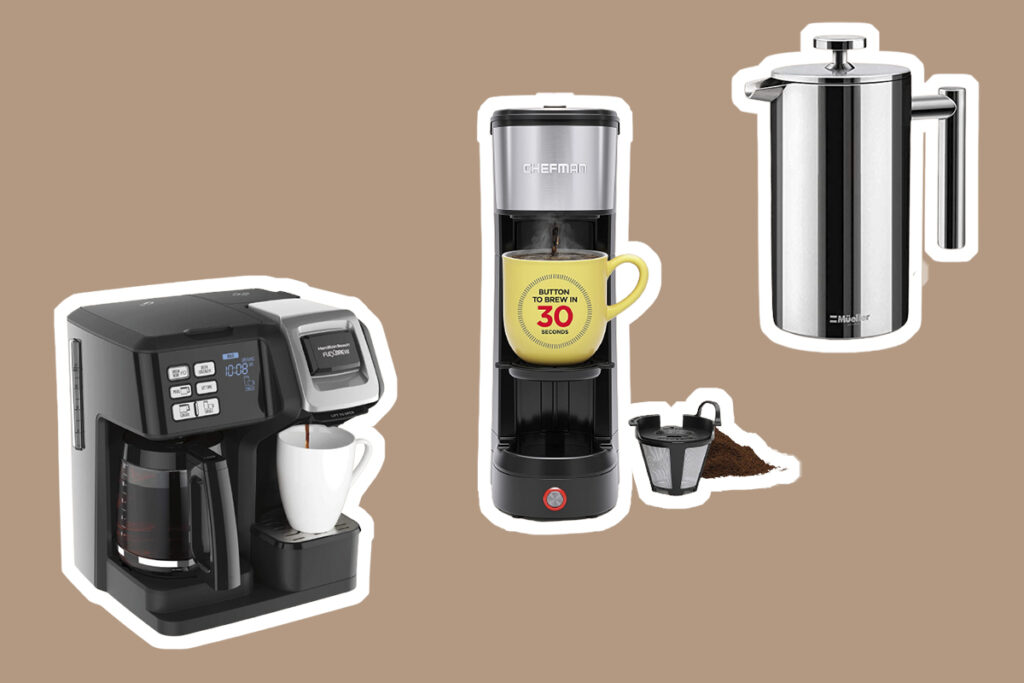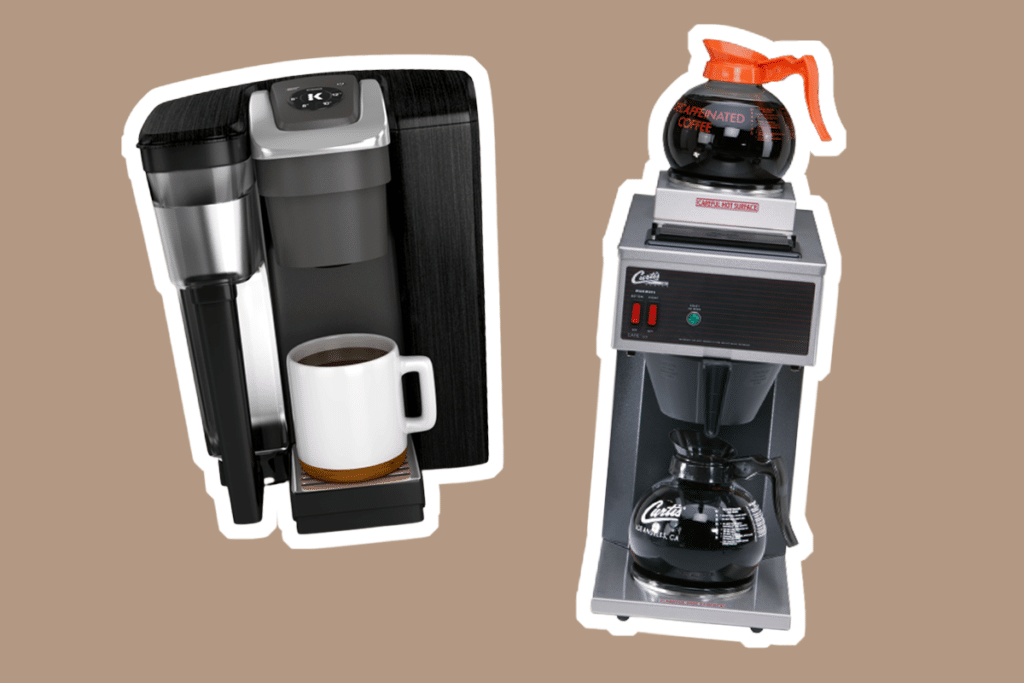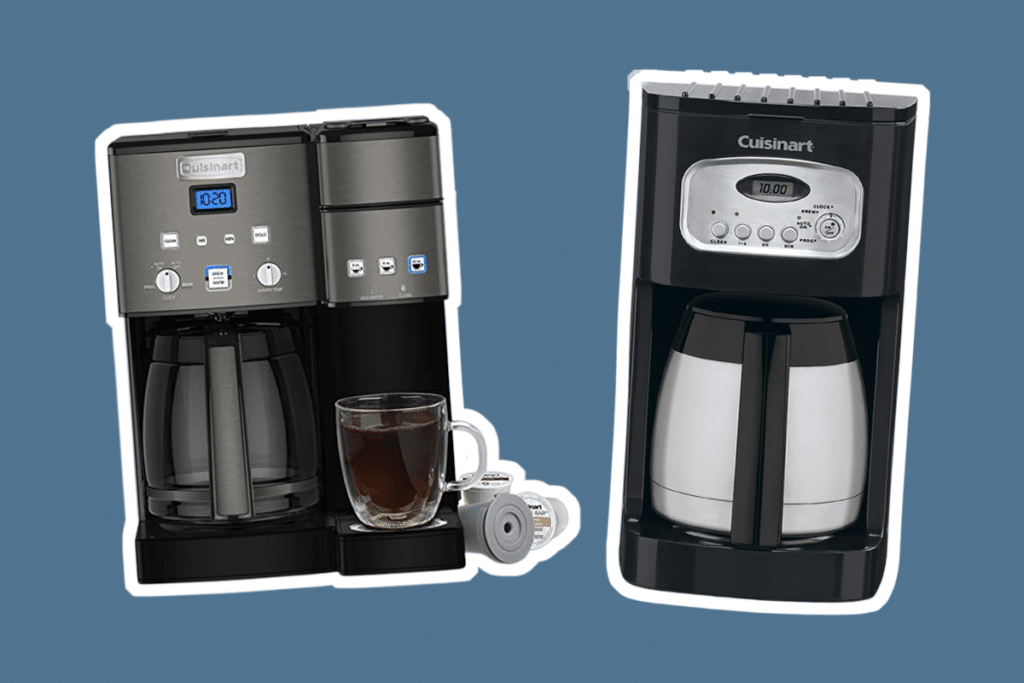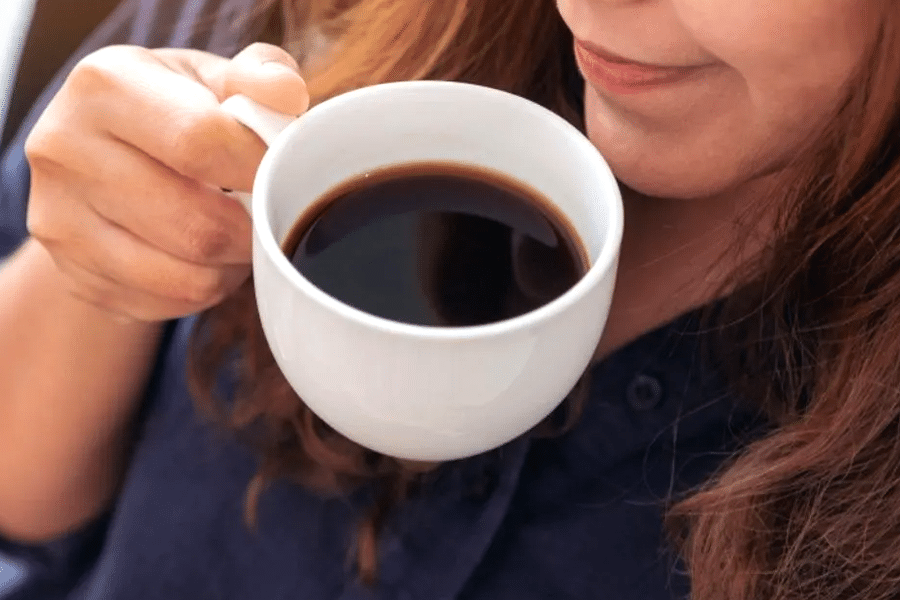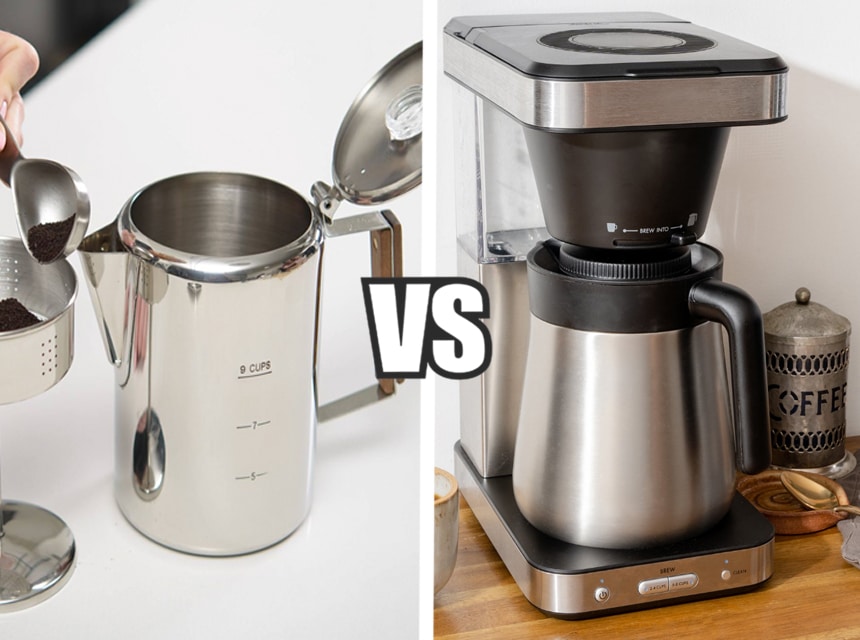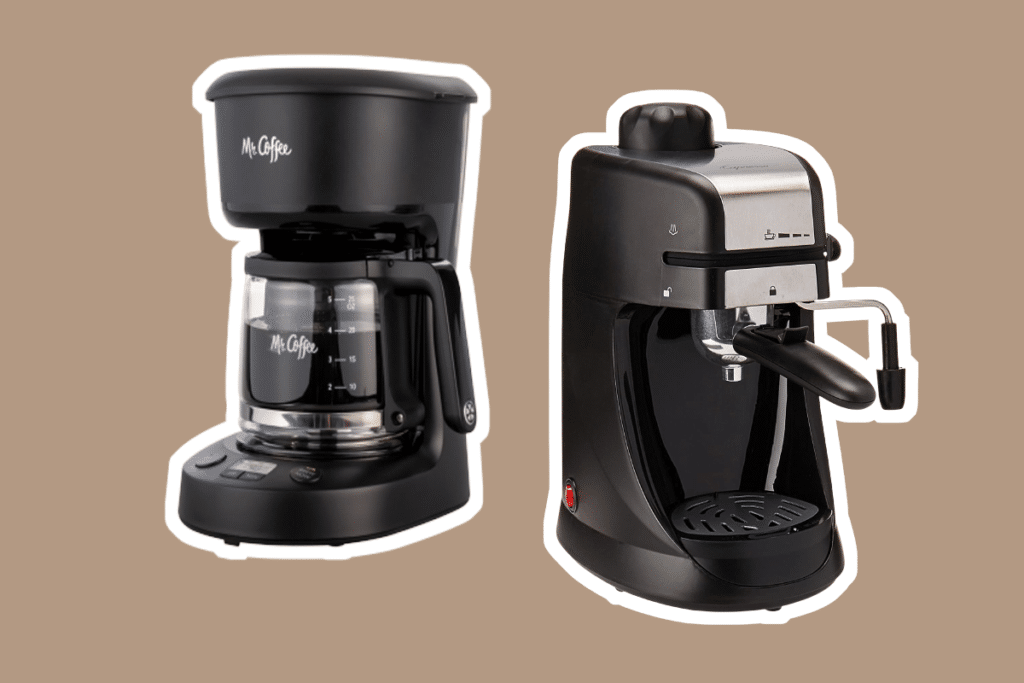

It seems like coffee has never been more popular. Many people have their favorite coffee drinks and stand in line every morning in order to get it. People have their favorite coffee shops, too, and often drop a fair amount of money to get their daily caffeine fix. But there’s a simpler and often cheaper, way to get your coffee – having a coffee maker in the office or at home. If you’ve ever wondered how to use a coffee maker, then this article should educate and help you decide what’s best for your needs.
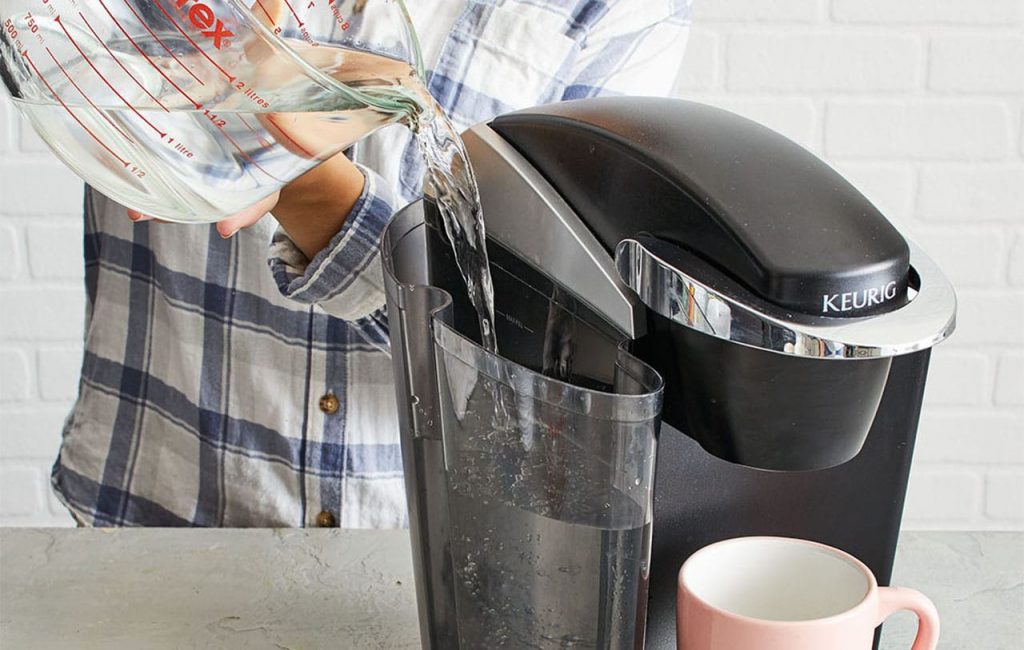
Don’t use distilled water when using a drip coffee maker because you actually do need some minerals in the water in order to brew the coffee.
Drip coffee makers tend to come with a variety of different filter types, from paper to stainless steel. Some coffee makers use a paper filter that has a round shape and a flat bottom. The sides of the filter are often wavy. These are the most common paper filters for drip coffee machines. They’re also simple to use. Just put the filter in the basket, and it’s ready to go.
If your coffee maker uses cone-shaped paper filters, it’s important to remember to fold the crimped edges in opposite directions before placing it in the filter basket.
But some drip coffee makers come with reusable, stainless steel filters. These are great because you don’t have to worry about buying new filters. Stainless steel filters are also very easy to use.
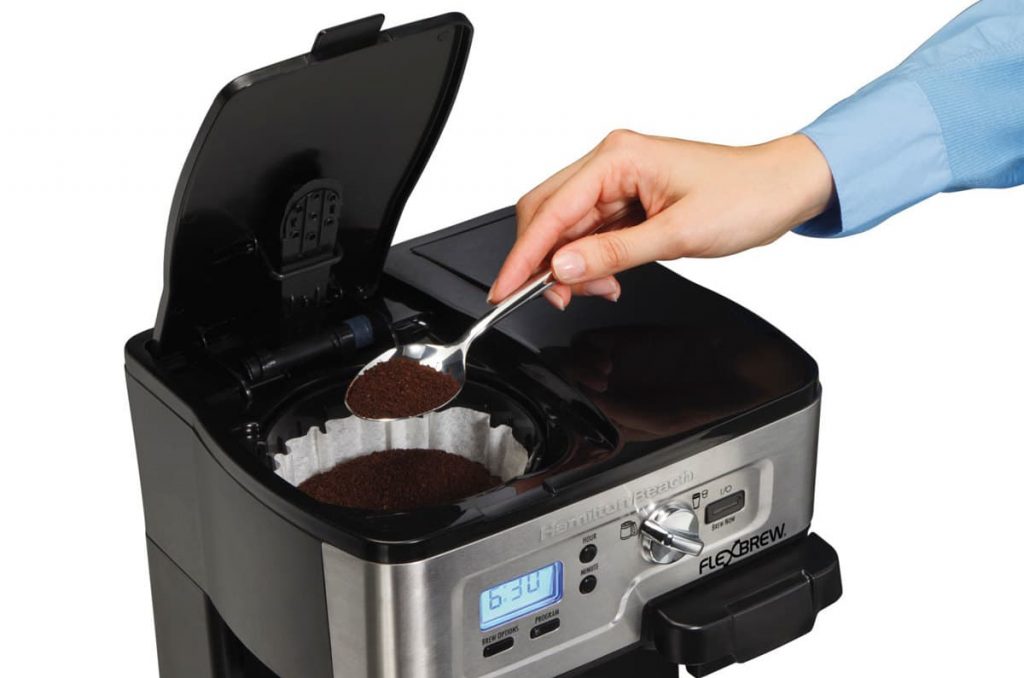
There are some coffee makers that come with a built-in grinder, which is very convenient.
If you’re grinding the coffee beans yourself, choose a “medium” grind size. Or if your grinder has a “drip” setting, pick that one.
Once your beans are ground, add them to the filter basket, and you’re ready to make perfect coffee!
Now it’s time to brew your coffee. Many drip coffee makers have specific settings you can try out, such as the strength of the drink, but if this is your first time, it’s often best just to start with the default or regular setting and then adjust from there to match your tastes.
For most machines, brewing the coffee can take between three to five minutes, measured from when the water first starts to drip from the machine into the coffee carafe. When all the water has flowed through all the coffee grounds, and the coffee stops dripping into the carafe, the brewing process is complete.
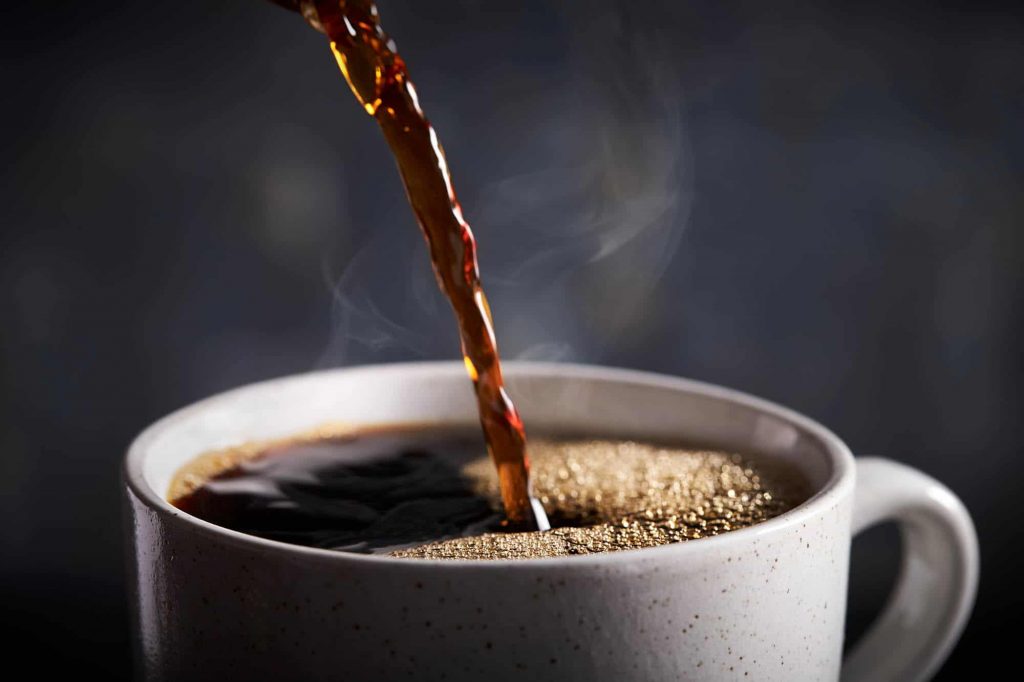
It’s important to note that the longer the coffee sits on the warming plate, and the more heated it stays, the more bitter it can grow.
If this is your first time making your coffee, note its taste. If it’s not sweet enough, or a little sour, you may want to try a finer grind. If it’s too bitter, a coarser grind may work. Experiment and adjust until you find what works for you.
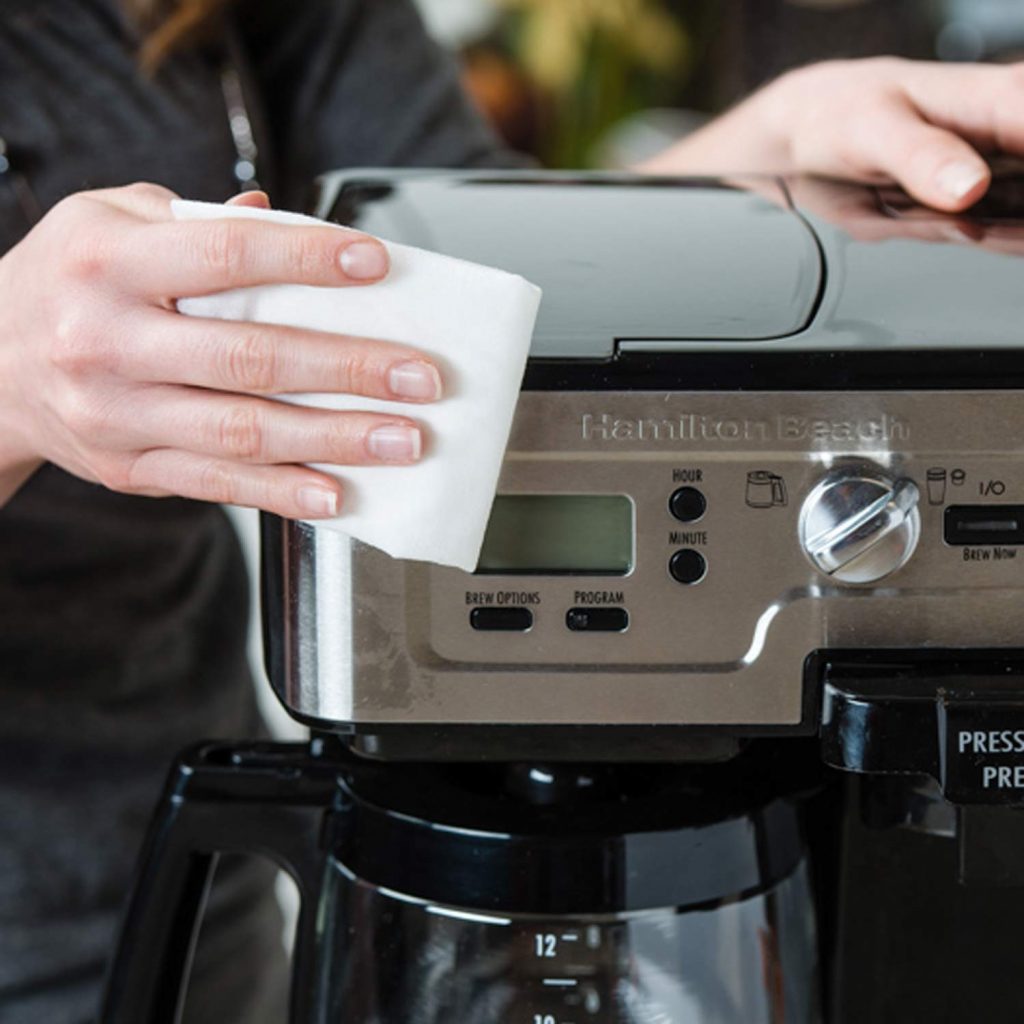
Some coffee makers come with self-cleaning options, so if that’s the case with your machine, follow the instructions to make sure everything is cleaned appropriately. Many other machines come with dishwasher safe parts, so know which parts you can remove and place in your dishwasher. Otherwise, you will want to handwash the remaining parts of the machine yourself.
Keeping your drip coffee maker clean will make sure that your next brewed coffee will taste fresh, and will also extend the lifespan of your machine, saving you money in the long run.
Now that you can know how to use a drip coffee maker, you can see that it’s an easy, convenient, and often cheaper way to get your coffee drink in the morning. You can control the amount of water and the type and grind of your coffee beans, mixing and matching until you have the perfect drink for you. No more standing in line waiting to be served. You’ve become your own barista.
